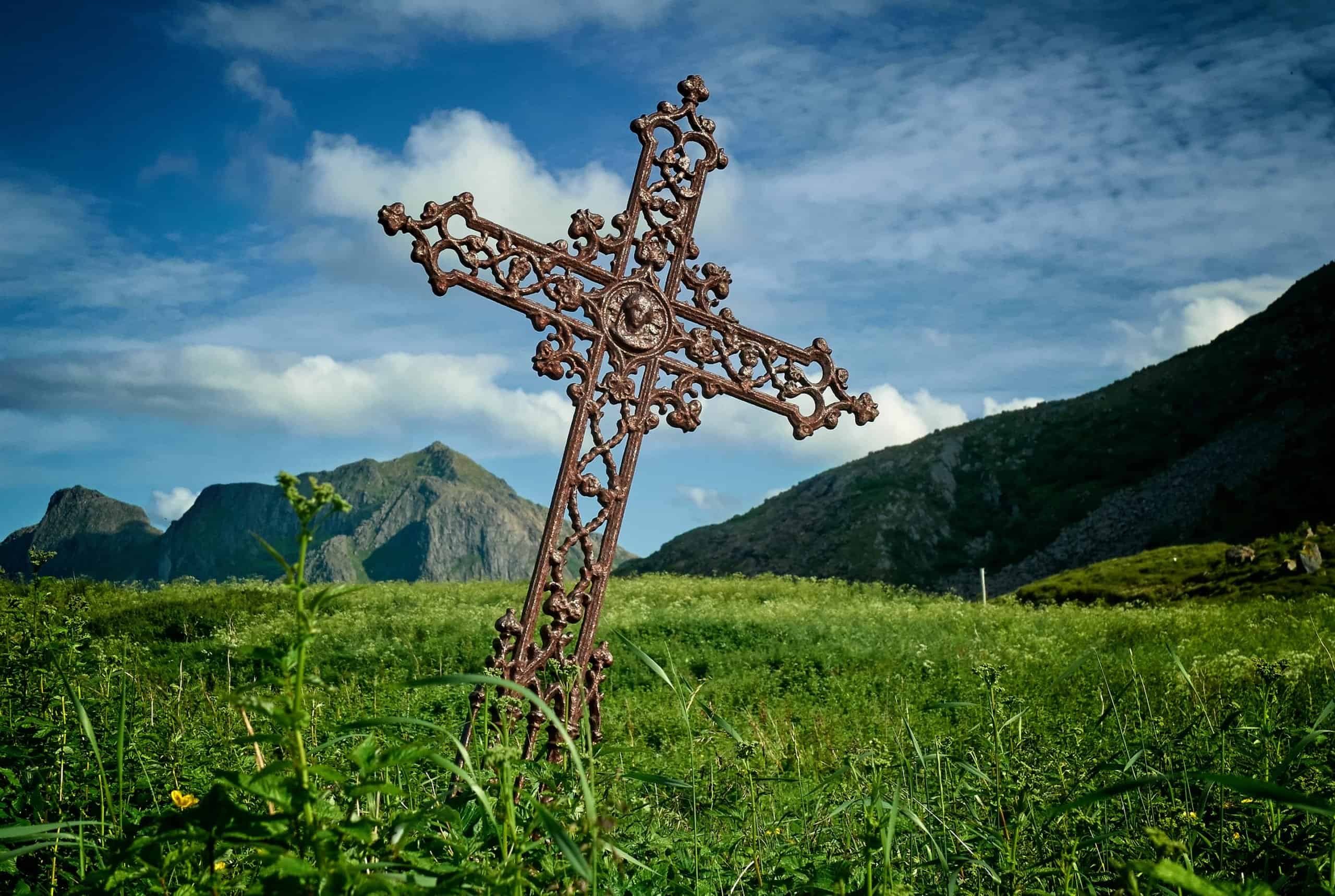My dad has a saying he’s been repeating for at least 15 years now: “Erin, everything past 60 is icing on the cake.”
The outbreak of COVID-19 has reminded the world – if we ever needed reminding – that like my dad, every human being has to come to terms with the fact that death is in our cards. Unfortunately, we also know ourselves and so recognize that even when frank acceptance of death is warranted, the better part of our energy is spent running away from it instead. We develop diets to promote longevity, we take supplements to increase lifespan, we avoid ‘germs’ like, well, the plague. We, like every other living thing on Earth, tend to want to hang on to what we’ve got for as long as we can. And the first and most precious thing we have is life.
Now let’s be clear. There’s nothing wrong with hanging on to life! To avoid dangerous situations and especially death is healthy. “Sin came into the world through one man, and death through sin” writes St. Paul to the Romans.1 Likewise the prophet Ezekiel declares that God finds “no pleasure in the death of anyone”2 for death is the end of something good. And God desires not that the good die but that the dead live, just as Christ was raised from the dead.
So in the specter of death, we rightly discern the darkness of sin, and in gratitude for God’s gracious gift, we correctly surmise a responsibility to care for our lives as vessels of the Holy Spirit and instruments of God’s designs on Earth. Death is an evil and life is a good.
And yet, the mystery of Christ’s redeeming sacrifice bringing life to the dead and reconciliation to sinners is also an important reminder that as Christians death does not have the final word. In his first letter to the Corinthians, St. Paul exclaims, “Where O death is your victory? Where O death is your sting?”3 “No, in all these things,” St. Paul goes on to say in his letter to the Romans, “we are more than conquerors through him who loved us.”4
Christ’s resurrection changes the calculus not only on living – how we ought to face life – but also on dying – how we ought to face death. Death, we as Christians are convinced, is no longer an end point. It is no longer the final word in a tragic (or perhaps comic) play in which we, as Shakespeare put it, “are merely players.”5 On the contrary, death is now God’s invitation to more life with him, in fulfillment not only of our deepest aspirations but also those of the entire world where we, along with all the saints, hope to continue our labors beyond the grave until the final coming of God’s Kingdom on Earth.
So how might this new ‘Gospel calculus’ function in today’s world with sold out shelves of toilet paper and stockpiles of hand sanitizer? It doesn’t mean “don’t wash your hands” and it certainly doesn’t mean we should ignore appropriate precautions – these are, after all, as much for others as they are for ourselves. But what it does mean is that whether we are 74 years old like my dad or 27 years old like myself, death is not a dark and meaningless force waiting to snatch us from safety and cast us into a hopeless oblivion. In fact, it’s just the opposite, for as St. Paul writes to the young church in Philippi, for Christians “life is Christ, and death is gain” because “to depart this life…is to be with Christ” forever.6
On the global scale, the chances of any healthy individual dying from COVID-19 remain small. But we all know people – it might be our parents or it might be us – who are at higher risk if they should contract the virus. Perhaps the present pandemic can be a reminder to us of what we’ve always believed as Christians: that a life well lived – be it for 27, 74 or any other number of years – is not nullified by death. On the contrary, in death it is redeemed.
I like my dad’s motto, and I hope I can adopt it for myself if and when I live to be his age. But in a time when fear of death is the order of the day, I don’t think we as Christians need to wait until we’re 60 (or 70 or 80) to join with the spirit of gratitude in a little prayer very much like my dad’s motto: “God, whenever you chose to take me home, every day down here was icing on the cake.”
//
Cover photo by Vidar Nordli-Mathisen on Unsplash.


